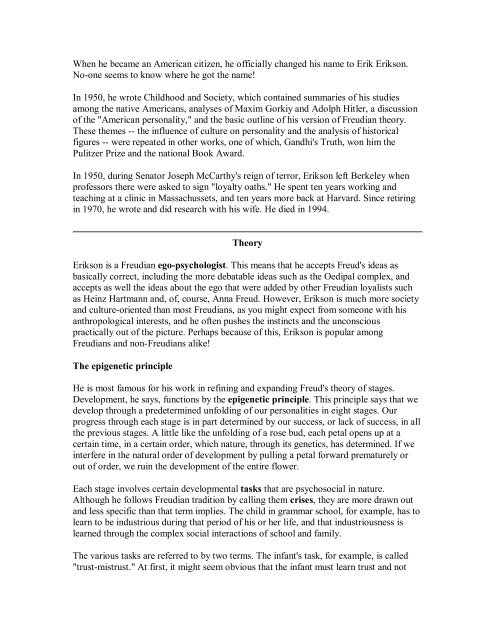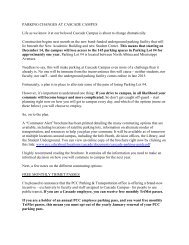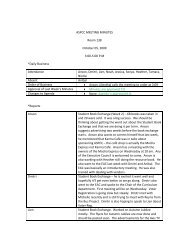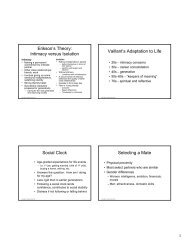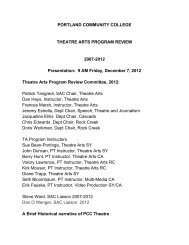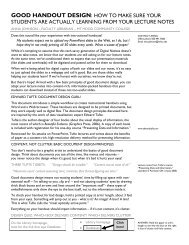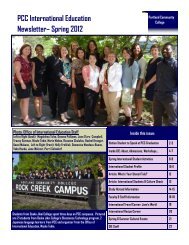erik erikson - pcc - Portland Community College
erik erikson - pcc - Portland Community College
erik erikson - pcc - Portland Community College
Create successful ePaper yourself
Turn your PDF publications into a flip-book with our unique Google optimized e-Paper software.
When he became an American citizen, he officially changed his name to Erik Erikson.<br />
No-one seems to know where he got the name!<br />
In 1950, he wrote Childhood and Society, which contained summaries of his studies<br />
among the native Americans, analyses of Maxim Gorkiy and Adolph Hitler, a discussion<br />
of the "American personality," and the basic outline of his version of Freudian theory.<br />
These themes -- the influence of culture on personality and the analysis of historical<br />
figures -- were repeated in other works, one of which, Gandhi's Truth, won him the<br />
Pulitzer Prize and the national Book Award.<br />
In 1950, during Senator Joseph McCarthy's reign of terror, Erikson left Berkeley when<br />
professors there were asked to sign "loyalty oaths." He spent ten years working and<br />
teaching at a clinic in Massachussets, and ten years more back at Harvard. Since retiring<br />
in 1970, he wrote and did research with his wife. He died in 1994.<br />
Theory<br />
Erikson is a Freudian ego-psychologist. This means that he accepts Freud's ideas as<br />
basically correct, including the more debatable ideas such as the Oedipal complex, and<br />
accepts as well the ideas about the ego that were added by other Freudian loyalists such<br />
as Heinz Hartmann and, of, course, Anna Freud. However, Erikson is much more society<br />
and culture-oriented than most Freudians, as you might expect from someone with his<br />
anthropological interests, and he often pushes the instincts and the unconscious<br />
practically out of the picture. Perhaps because of this, Erikson is popular among<br />
Freudians and non-Freudians alike!<br />
The epigenetic principle<br />
He is most famous for his work in refining and expanding Freud's theory of stages.<br />
Development, he says, functions by the epigenetic principle. This principle says that we<br />
develop through a predetermined unfolding of our personalities in eight stages. Our<br />
progress through each stage is in part determined by our success, or lack of success, in all<br />
the previous stages. A little like the unfolding of a rose bud, each petal opens up at a<br />
certain time, in a certain order, which nature, through its genetics, has determined. If we<br />
interfere in the natural order of development by pulling a petal forward prematurely or<br />
out of order, we ruin the development of the entire flower.<br />
Each stage involves certain developmental tasks that are psychosocial in nature.<br />
Although he follows Freudian tradition by calling them crises, they are more drawn out<br />
and less specific than that term implies. The child in grammar school, for example, has to<br />
learn to be industrious during that period of his or her life, and that industriousness is<br />
learned through the complex social interactions of school and family.<br />
The various tasks are referred to by two terms. The infant's task, for example, is called<br />
"trust-mistrust." At first, it might seem obvious that the infant must learn trust and not


